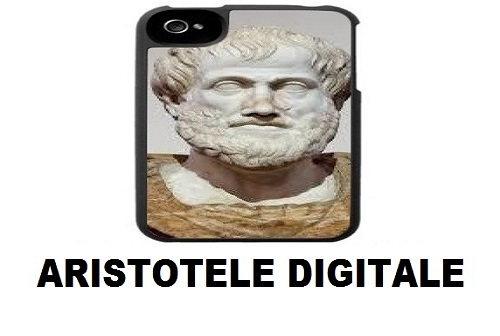The digital dimension returns, reactivates, lives and recognizes the original (timeless) condition of the logos where truth is case by case, the discourse does not necessarily resolve into reason and doing can only recognize itself in its own “poetic” condition.
This, regardless the fact that many continue to think that it is the ultimate realization of the domination of technology (and objectifying reason) over the world.
Consider the word logos. According to some it would be at the origin of our Western culture, as if it were a linguistic fossil, as if we were analyzing the remains of Lucy, a three millions years old hominid . Does it make you especially think that Lucy may be Western or Eastern, black or white or yellow-skinned?
Logos, as a noun, derives from the verb lego which stands for to collect. It arises in two aspects a) the succession of things and their repetitiveness b) the judgment as a sorting. It is an extremely uneasy word.
A tie, knot, hold together, collect, count, discriminate, recognize, order, measure, proportion. Reading is a listening to speak. What allows us to keep together the immense diversity of the existing. The set of intention, gesture, thought, word, speech, truth. Identity and difference.
Logos is what man must first listen to in order to be able to speak and think. Heraclitus says that Logos gathers the one and the Whole. Everything means the infinite variety of what is. The logos gathers everything and makes it to be seen as one.
Logos is not a term from the pre-classic era. It appears only twice in Homer and is equally rare in Hesiod. In his The Origins of Western Thought, R.B. Onians wonders: “… in what ways do Homeric notions related to the fundamental processes of consciousness differ from ours?”
And he answers: In the Homeric world, “thinking” is defined as a “speaking”, whose seat is sometimes identified in the heart, but more often in the brakes in the “diaphragm”. A thinking that does and a doing that thinks.
This original concept of thought as a word, in the unity between thought and corporeity, between sensitive perception (aisthesis) and thought (nous), is resolved, in the name of dominion over the world, over things, and over the other, in the autonomy of reason with respect to discourse, in the autonomy of truth with respect to the world: in the objectification and mathematization of the world.
Logic has turned into science, better into technique (he logikétéchné). How and why? Difficult to say.








